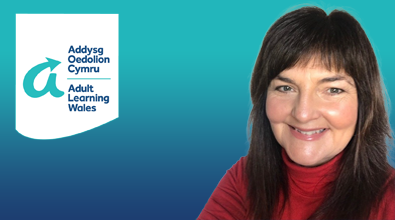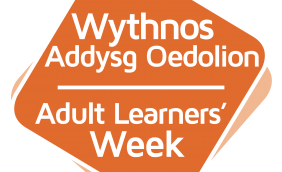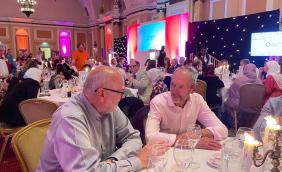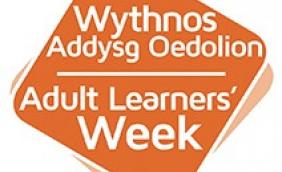As we continue to celebrate #AdultLearnersWeek, this year’s campaign looks to connect people to lifelong learning opportunities and inspire them to embrace second chances.
With a focus on the key theme of Tackling barriers and promoting inclusion for all, Adult Learning Wales Chief Executive, Kathryn Robson shares her thoughts on the importance of inclusivity and challenging our assumptions.
Inclusivity is a byword of our organisation – it is a founding stone upon which our values and principles are drawn.
We have an array of equality and diversity policies and having such frameworks in place is a good thing. Perhaps better still, is demonstrating that commitment through strategic equality plans; these can have a positive impact on attitudes, particularly if there is good quality staff CPD in place and a meaningful progressive action plan.
Standing on such a seemingly solid platform prompted me to think about writing a supportive piece that acknowledged the importance of campaigns such as Black Lives Matter, and, as part of October’s Black History Month, highlighting the achievements of many extraordinary people.
So, initially my thoughts lay with all that we do as an organisation to promote inclusivity, specifically around the Black Lives Agenda. For instance, our broad engagement with learners from all backgrounds, our diverse curriculum offers across all regions in Wales and our commitment to be non-discriminatory and all-inclusive throughout all our business activities.
But while proudly reflecting on all of our efforts I questioned, ‘Is it enough?’, and ‘Do I really know, or do I assume too much?’.
The position from where I might view our efforts – as perhaps would be the case for a great many - is framed by individual circumstance and experience, and as such the absence of true insight introduces a synthetic and perhaps unrealistic layer. It would be very cosy and convenient for us to hide behind assumptions, but while this is the case, any genuine exploration and resolution to the clear and continued flaws in our society would go unmet.
What is it to be black?
All who I’ve gathered with and engaged with on this (black learners and network colleagues) have resoundingly concluded that the discussion needs to continue to help break down barriers and improve understanding. Similarities for all was evident and “White privilege” presented as a theme throughout.
Do we really know, or do we assume too much?
Characteristics defining white as “good, clean and superior”, with “black” being seen as “bad, dirty, and insignificant” are still being referenced - and felt.
Differences in day-to-day treatment ranged from police harassment - being stopped and questioned for no justifiable reason - to senior academics describing their reverence by peers and students in a learning environment, but experiencing supermarket staff making a point of speaking slowly to them, assuming a lack of understanding. Experiences for the same individual of using public transport, highlighted that where any spare seat next to them might be available, this is always avoided until there is absolutely no choice but for it to be taken by the very last person boarding the train.
Examples of these separatist behaviours were many. And the inconvenient truth is that this is not news, it is reality.
Any sense of our society having overcome such prejudices as a result of equality legislation - which has been in place for generations – is quite removed from the truth we must all face. Where our organisation can and should be proud of its efforts and results in this, our wider community falls short still of one that can be described as fully inclusive. We all need to challenge our assumptions in a collective bid to change our attitudes and understanding of prejudices all around us. And this extends way beyond the colour of our skin, where any characteristic brings about perceived negativity and difference.
Yes, the candid conversation needs to continue but words need to shape real action.
As an organisation, Adult Learning Wales will continue to review approaches to inclusivity, and we will actively encourage people to speak openly and candidly to inform upon these for the benefit of our learners and the good of all our citizens. Black lives matter. All lives matter.
Kathryn Robson, Chief Executive, Adult Learning Wales 
Kathryn Robson is Chief Executive of Adult Learning Wales, the National Organisation for adult community learning in Wales. A firm supporter of lifelong learning opportunities for all, Kathryn is committed to driving forward the adult education and inclusivity agenda, giving greater accessibility to learning for communities across Wales.
Further Information
Adult Learning Wales website
Lucy Hopkins, Communications Manager
Lucy.Hopkins@ColegauCymru.ac.uk








